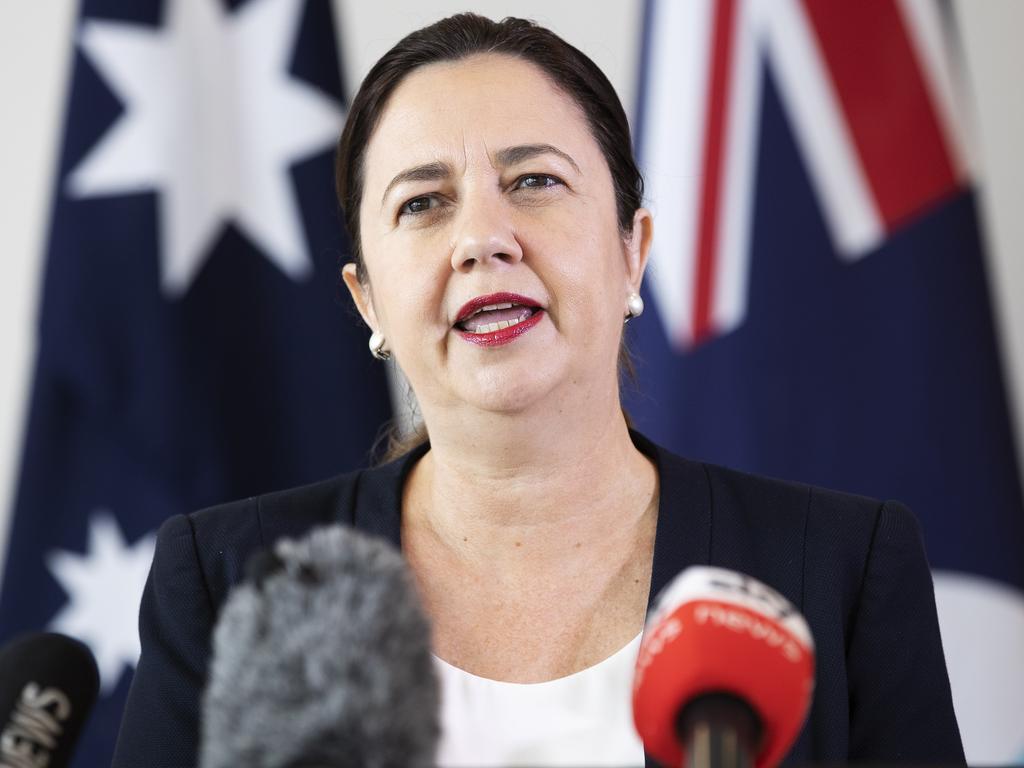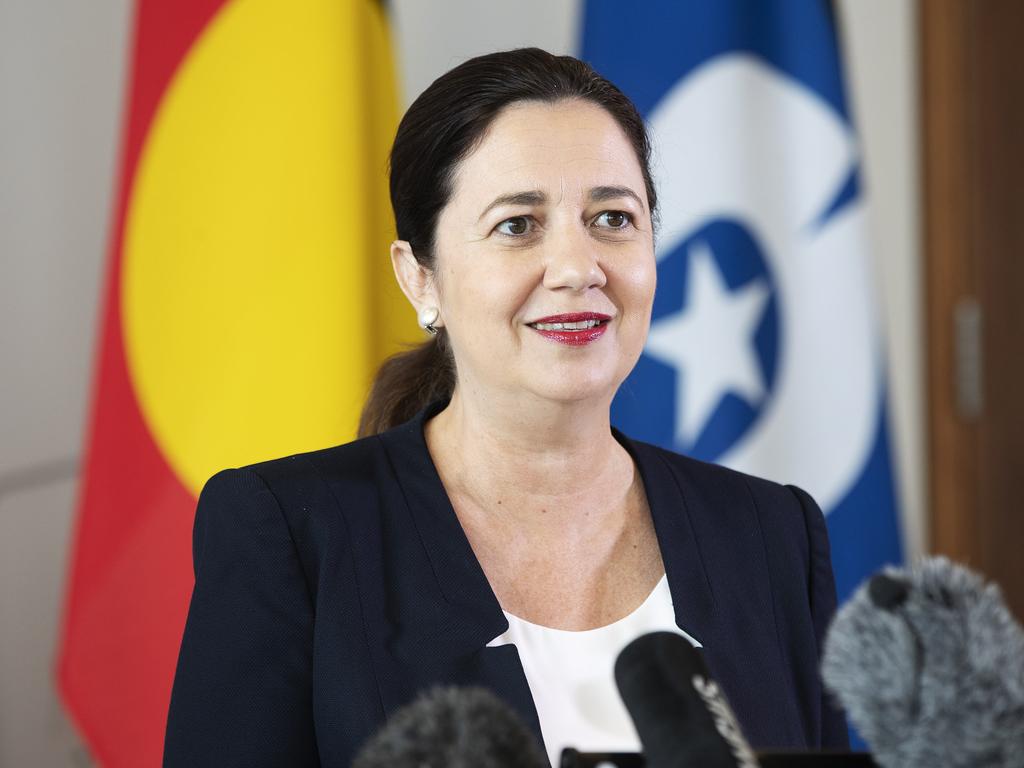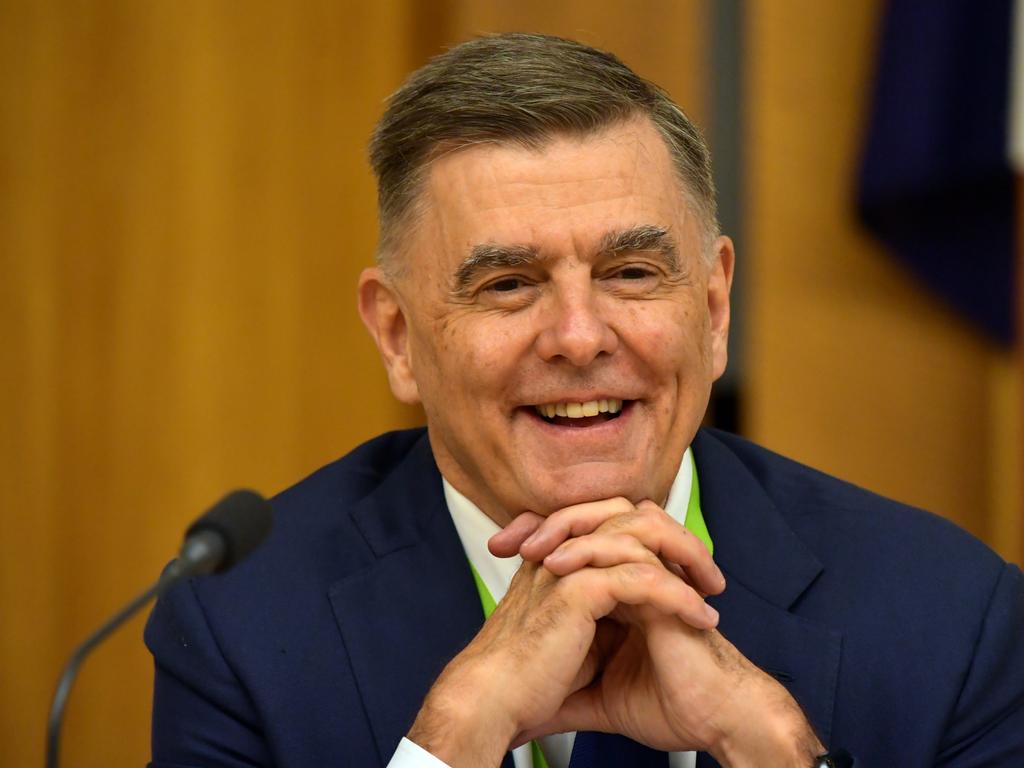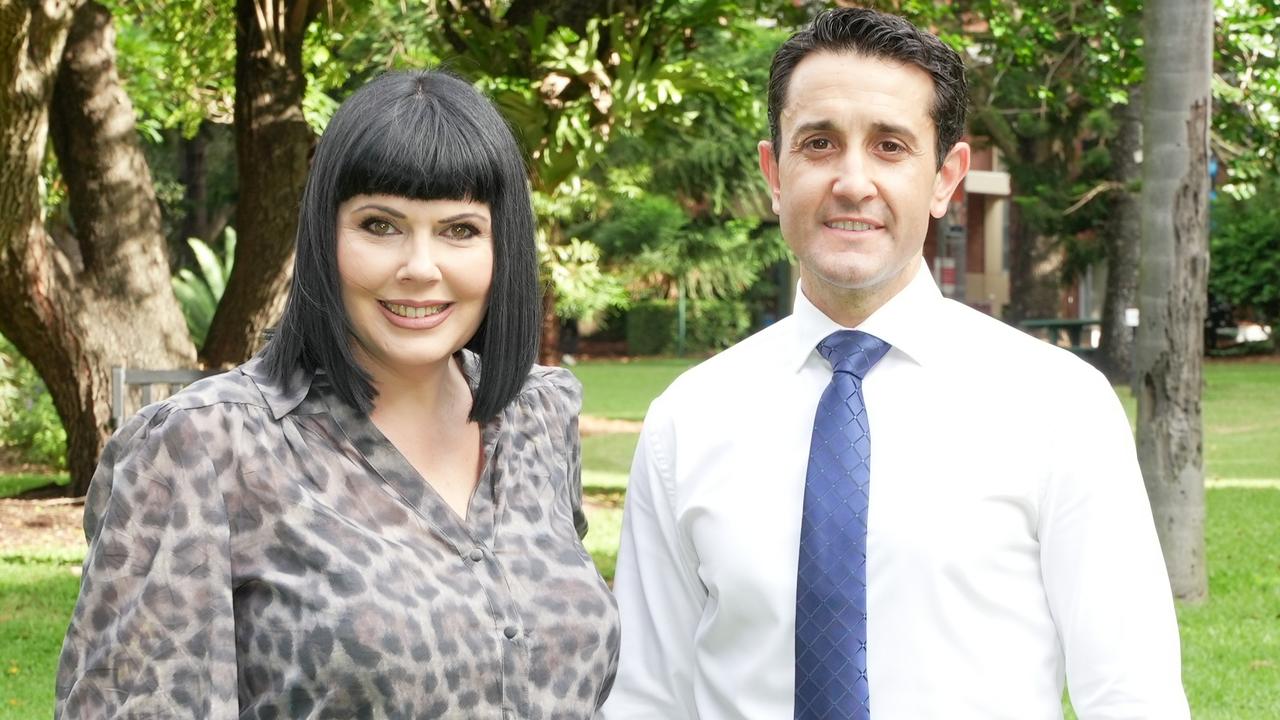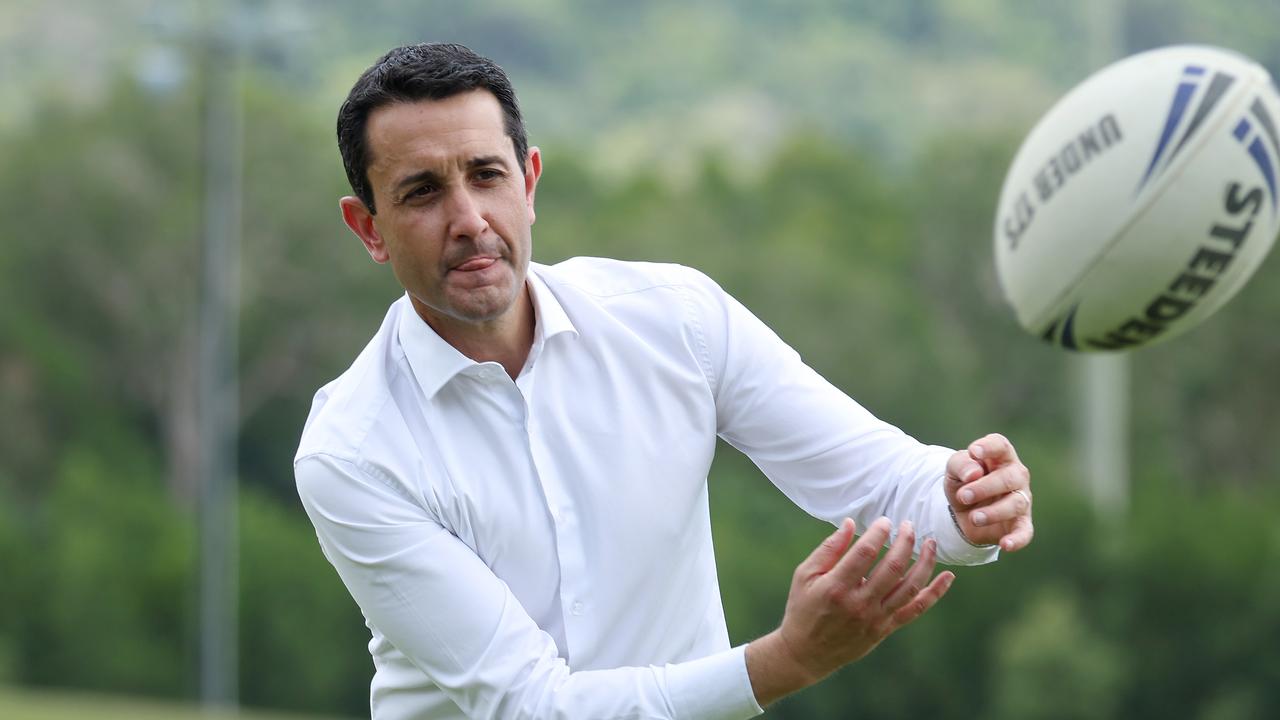Scott Morrison’s next step towards the new normal after coronavirus
The PM is preparing the nation for a new phase of the pandemic, devising a strategy to return life to normal after vaccination.

Scott Morrison is preparing the nation for a new phase of the pandemic and has tasked top public servant Philip Gaetjens with devising new strategies to return life to normal as the COVID-19 vaccine is rolled out and emergency support is withdrawn.
The Prime Minister announced the policy taskforce led by Mr Gaetjens after a national cabinet meeting in which deep rifts emerged between the Labor states and the federal government over hotel quarantine and requests made for more information on international arrivals.
Queensland Premier Annastacia Palaszczuk told The Weekend Australian the Morrison government was wrong to delegate responsibility for quarantine to the states. She urged him to take greater action in curtailing the threat posed by the more infectious variants of COVID-19 originating overseas.
“It is a changing environment. People got the system under control with hotel quarantine for returning Australians,’’ she said. “But now it is this highly contagious strain, and it is like you are just sitting on a ticking time-bomb.
“He (Morrison) says quarantine is looked after by the states, but it has to be a shared responsibility … You need the Border Force, you need everyone working on it. We’re saying that there are other commonwealth facilities. Why are we not exploring all of these and how they can be used?”
West Australian Premier Mark McGowan also warned that hotels were “built not to be quarantine facilities’’, but were “places to go on holiday’’. He expressed frustration that more serious consideration was not given to the use of Christmas Island, other detention centres or remote defence bases for quarantining returning Australians.
“The commonwealth has once again said that is not possible. That is their approach … force to the states to do it,” Mr McGowan said. “We have now had 37,000 returning Australians go through our hotel system.
“We have had one issue … where there has been an outbreak. Obviously we ... (will) learn from this and do our best to prevent it from occurring again.”
After the virtual meeting with state and territory leaders, Mr Morrison declared that Australia’s “risk environment” had shifted and there was hope that COVID-19 could be treated “in a very similar way to other viruses in the community” — although that remained “some way off’’.
It was agreed that Mr Gaetjens, the secretary of the Department of Prime Minister and Cabinet, would work with his state and territory counterparts and report back “as soon as possible” on new COVID-19 policy options that could include different ways of responding to a “break out of a case’’.
Mr Morrison said that, once the severity of COVID-19 was reduced, there was potential for it to “be considered in a very similar way to other viruses that are in the community’’.
“I want to understand the risk-settings better so we can better manage the pandemic and ensure our economy can grow and Australians can return to as normal life as possible,” he said. “It is about trying to recalibrate. I’m asking them to advise us how we recalibrate the risk-settings on what our responses are.”
Mr Gaetjens will take advice from Health Department secretary Brendan Murphy, Therapeutic Goods Administration chief John Skerritt and examine how Australia’s pandemic response should be altered, given the government’s $6.3bn vaccine program, the emergence of more contagious variants of COVID-19 and improvements in testing, contact tracing and quarantine arrangements.
Speaking before a parliamentary inquiry on Friday, Professor Murphy argued the imminent vaccine rollout would put the nation on a “path to relax” after a string of snap lockdowns.
“We want to get to a position where if the population is vaccinated, we might get small outbreaks but not be so worried,” he said. “Progressively as we get more and more people vaccinated … we will be on a path to relax.”
Before the national cabinet meeting, Ms Palaszczuk, Mr McGowan and Victorian Premier Daniel Andrews all pushed Mr Morrison for quarantine alternatives after the recent infection of workers at hotels in Brisbane, Melbourne and Perth.
But Mr Morrison stood by the existing arrangements. “Our hotel quarantine system has been incredibly effective in protecting Australia over this period of time,” he said. “The states run hotel quarantine … That was the decision we made last March. Over 211,000 people have gone through that process, and the number of breaches we’ve had … is incredibly small.”
In recent weeks, Ms Palaszczuk has championed a transition from hotel quarantine to regional-based centres in the face of the threat of the more contagious variants of the virus.
Mr Morrison has already rejected the use of an existing 1400-room workers camp 20 minutes west of Gladstone, but says his government is looking at a proposed yet-to-be-built facility in Toowoomba.
“We are still seeking a lot more information on that proposal,” he said. “It’s not just about understanding what the costing arrangements (are), but it is understanding the workforce arrangements to run a facility like that and how that can be delivered.”
Mr Morrison said the government was also “looking to expand the capacity further of Howard Springs” outside Darwin to more than double its capacity of about 850 people.
States agreed at national cabinet that the caps on international arrivals would return to pre-January 8 levels in NSW (430 a day) and Queensland (1000 a week) from February 15.
The current cap in Western Australia (512 a week) will remain in place, pending a review, while the cap in Victoria will increase from 1120 to 1310 weekly arrivals from February 15. South Australia will also increase its weekly intake from 490 to 530 arrivals.
Ms Palaszczuk said the federal government would provide the states and territories with more information about overseas arrivals.
Additional reporting: Paul Garvey

